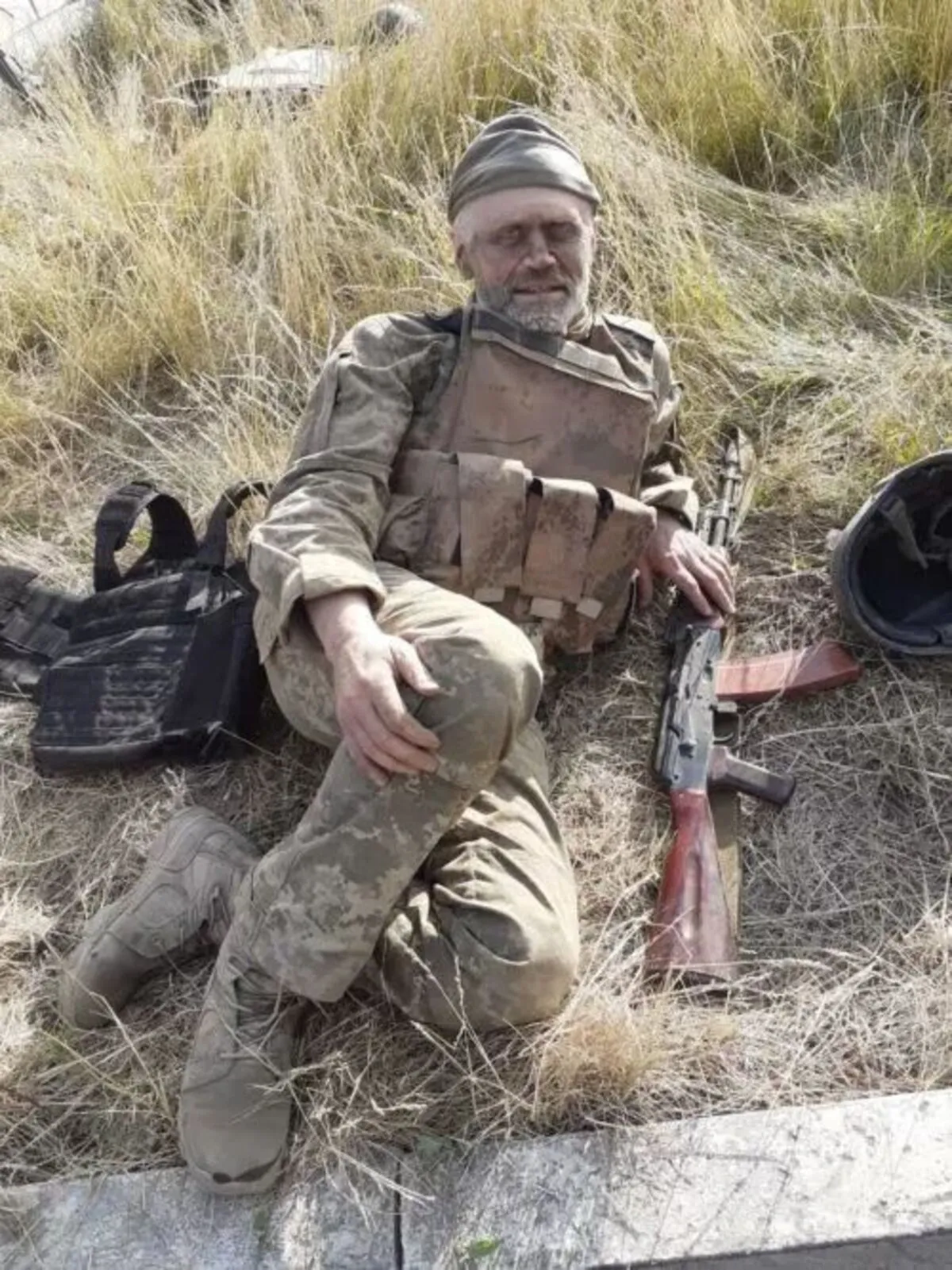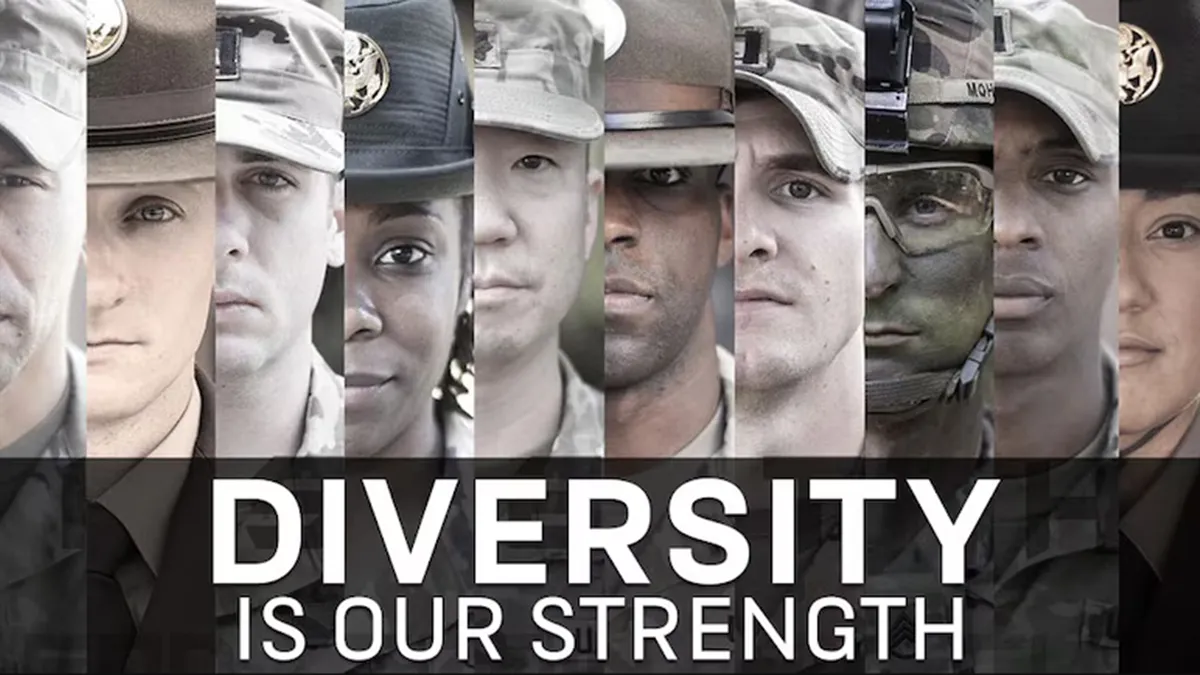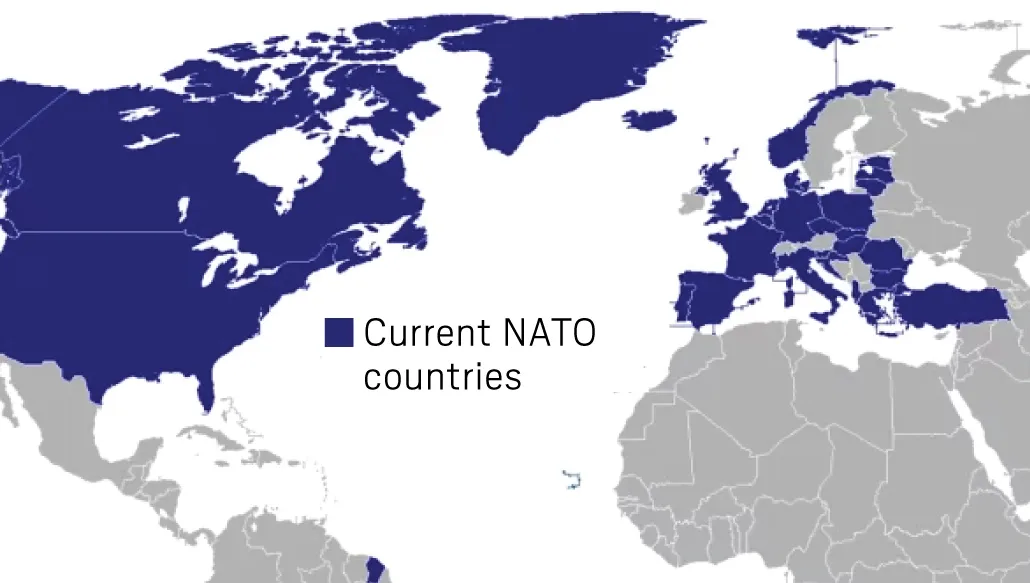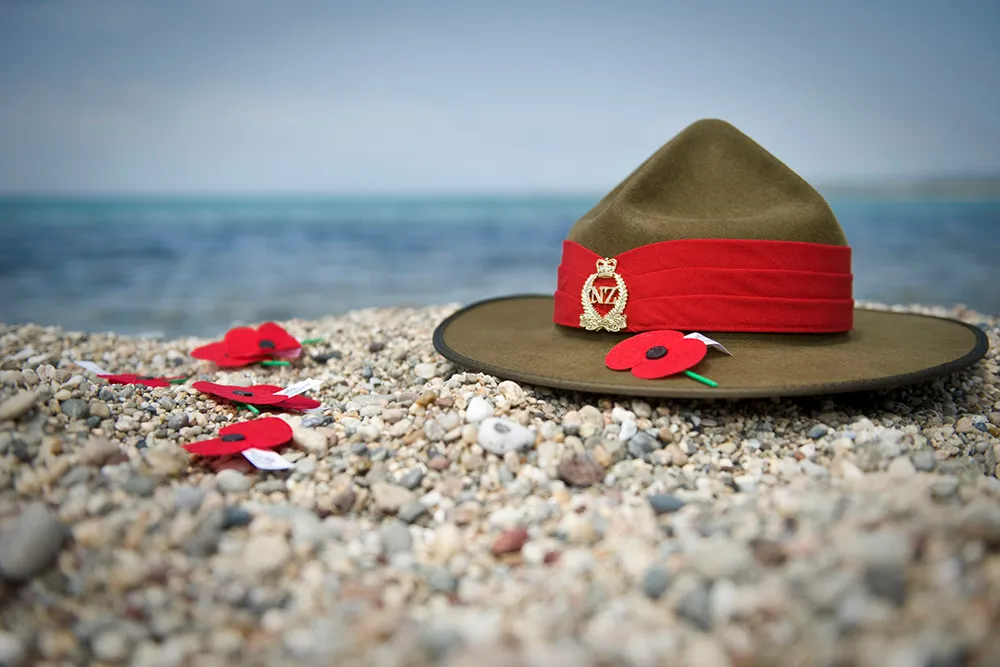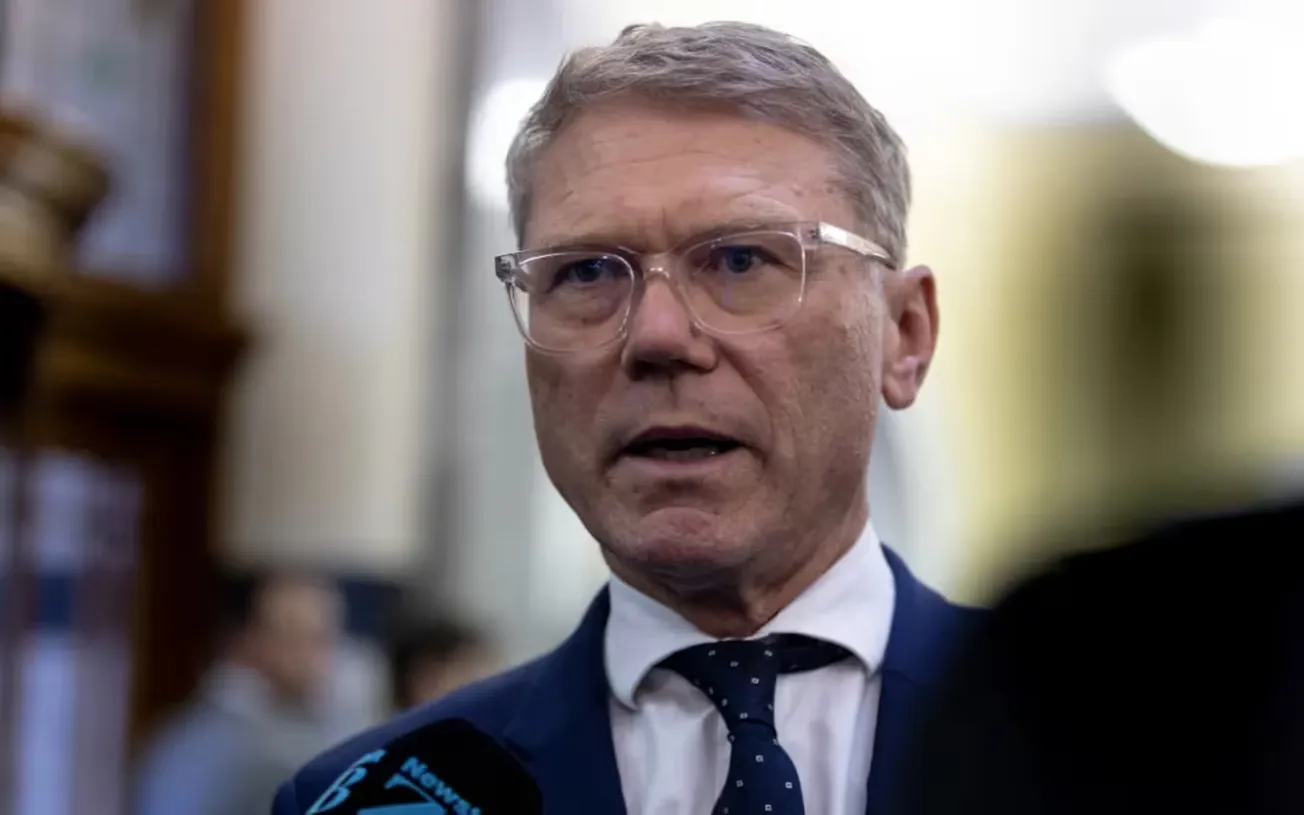Table of Contents
Myroslav Otkovych
The night sky begins to brighten. The darkness rises silently from the trenches. The grass further down in the field converses with the bugs. Still further away, a goat has us under observation, while a fox races into its den. Slowly but surely we are at the dawn of a new day.
A bright new moon hangs low over the earth. Its distinctive disc touches a fallowed field off on the horizon, its colour changing ever more crimson, a red shining sliver, as though the moon were sipping our blood.
We have arrived at our deployment location. A new troop rotation. The men that we’re to replace emerge cautiously from their shelter, careful not to expose themselves to any enemy drone that might be in the sky at this moment. I initially do not recognize them. Are they our men, or not?
They walk out, tiny pupils in wide open eyes. Most of their faces are emotionless; some are as dead as a plaster death mask. I am plagued by one thought: “Lord, what have these men just endured?” Vepruk intuitively understands the query behind the expression on my face and answers, “It’s been hell.”
“Be careful, Myrik.” It’s Siepar who speaks. He’s typically rather vocal, but of late has been uncharacteristically quiet.
“Boys, promise me you’ll keep alert to the sounds of incoming shells,” Korotky adds in Russian, in a fatherly and concerned manner.
The final voice to be heard is a word from Takbir. He speaks in a near-whisper: “It’s scary here. And it smells of death.”
I’ve had a painful headache ever since we arrived. Now I understand why. I can’t escape the stench of corpses. Additionally, there’s the smell of smoke and scorched grass. Artillery shells razed the grass as they exploded.
By morning we’re quartered in an underground shelter. We tend to our supplies and we study our line of fire. The silence our unit has been enjoying is abruptly disrupted by the first explosion. The enemy is firing at us using artillery. The shells strike accurately and fall in a tight pattern, one after another. The artillery is merciless and fierce. It cuts into our trenches, destroying the shelter – and sowing death.
The radio crackles to life:
“Spider, this is Bobman.”
“Copy.”
“The orcs are making their way through the trees. I’m forwarding the coordinates. Send them some surprises.”
“Copy.”
And so we make our exit. The sound of chaos is all around us: the noise of mortars and shells whizzing past our heads. We arrive at our battery, exposed as it is. I adjust the coordinates on the barrel of the mortar. Time passes in seconds that feel like painfully long minutes. Bullets whistle overhead, joined by bursts of automatic rifle fire and the lower baritone voice of a machine gun.
My compass isn’t cooperating: the arrow unable to mark the direction north. We’ll be firing at close quarters. What’s needed now is pin-point accuracy in our firing, so as to avoid striking our own men. The platoon commander can barely restrain himself as he nervously rocks from one foot onto the other. He takes cover in the shelter, then shouts out to me through an opening in the wall. “Hurry up already. I said ‘Open fire!’ Don’t you understand?!” I continue working on the compass needle to find the correct bearing.
Fooshshshfkheeest. A second enemy mortar speeds loudly through the air and crashes nearby. I leap to safety, and just in time. I look like a turtle when I complete my landing. What that means is that my back is arched, my feet are tucked under me, my knees are pinched together, and my arms are above me as I hug my head close between my shoulders. In this manner I have a better chance of protecting my extremities, while the bulletproof vest protects the rest of me in the event I get hit by shrapnel.
I have survived unscathed this time. I get up and return to work. The shell struck the wall of a barn and the unprotected animals inside. All one can hear from that direction is the bleating of goats. These cries are punctuated by the repeated and hysterical falsetto of the officer, “Faster. Faster.” They alternate: “Baaaa. Baaaa.” “Faster. Faster.”
I’m reassured by the knowledge that I have reliable men with me: Feshn and Tekhnik. Our mortar is held above the barrel opening. I adjust the settings again, as well as the horizontal and vertical placement of the mortar platform. All set. Ready! “Fire!” I cry. Boom-ba-ba-boom! The mortars are furiously propelled into the sky, heading directly for the cluster of enemy soldiers. The bombs detonate in a flurry of metal pieces, turning evil orcs into good ones. The noise from the mortars is deafening
Tekhnik is visibly agitated, though much more out of concern for us than for himself. His mission is twofold. He’s a medic. And he’s a combat soldier. Just recently, he extracted one of our officers from the battlefield, applying a tourniquet first and, in so doing, saved the man’s life. We have no desire to make extra work for Tekhnik, and so we seek the protection of the underground shelter.
The rifle fire begins to wane. The enemy diversionary reconnaissance group retreats. To our relief, our heavy field artillery opens fire. Our job was to restrain the invaders, and the job of the artillery now is to decimate them. There will be fresh fertilizer.
Rudy is dead. Shrapnel from a mortar pierced his helmet and struck him in the head. Rest in peace, brother. May you enter the heavenly kingdom. Honour and glory to you! To tell you the truth, I feel no emotions at all right now. My one thought? I need a drink of water.
By the fifth day of this battle, our eyes and the expression on our faces now resemble those of the soldiers who greeted us when we first arrived. No one was prepared for the intensity of this combat.
We are squarely situated at what’s known as ground zero. Here, the war is such that we’re forced into a daily game of roulette with fate. Multiple missiles explode simultaneously. The earth heaves and shrapnel fills the air. Not only does the sudden shock wave strike hard against your ears, but your eyes begin to darken as well. In fact, all your internal organs begin to vibrate.
Beyond the safety of the shelter, the chaos is sheer hell. I’m not exaggerating. The sky is hidden behind smoke and ash. The natural light of a clear day turns into night. Tongues of fire lick the still-standing walls of destroyed houses. The fire approaches menacingly the entrance of our shelter, and also scorches the earth and grass in the near vicinity.
I twist and contort my body into a fetal position and count the explosions: One. Two. Three… 40. An entire complement of missiles that one Grad system can fire. During this bombardment, I intuitively seek an emotional embrace with each and every person in my life back home who is worried about my well-being.
The ESP works flawlessly. The brain receives signals like a computer modem. All those who are “online” with you are your “subscribers”. Your universe. Your family. Every authentic and loyal relationship in your life. Together they form a protective, invisible dome over your head, stopping the sky from collapsing onto you. They deflect incoming harm off into the open field, and prevent high explosives from detonating, leaving them harmless in the ground where they’ve crashed.
War is not explained in this manner in books, and less so in movies, where the emphasis is on heroism, or on the manipulation of tragedy for the sake of drama. Normal people don’t want to buy tickets to watch the type of “movie” that we’re experiencing here.
[Translated and edited]
Original source.

